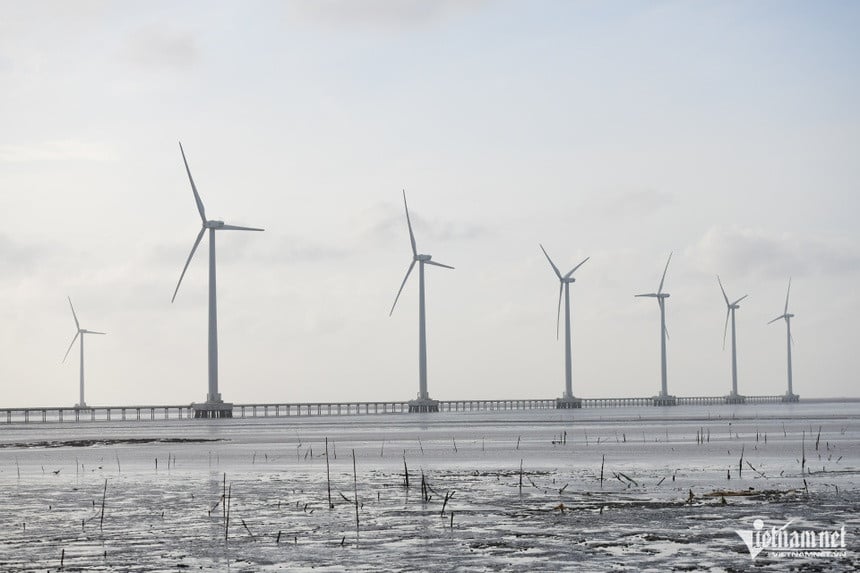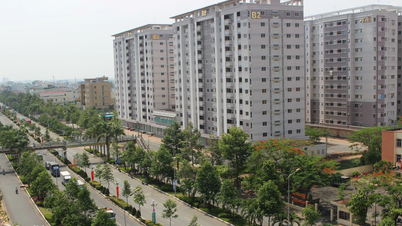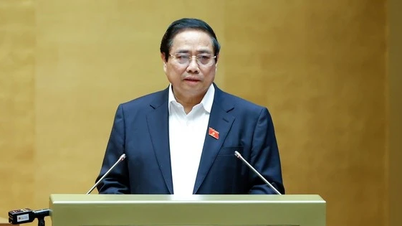At the seminar "Ensuring electricity for growth - Requirements and solutions" organized by the Government Electronic Information Portal on the afternoon of May 7, former Director of the Price Management Department Nguyen Tien Thoa pointed out 3 major shortcomings of current electricity prices.
Electricity prices are carrying too many targets
The first, Electricity prices have not been implemented according to the market price mechanism. For many years, electricity prices have not been calculated correctly and fully taking into account input costs. At the same time, the situation of buying high and selling low has not been overcome.
Second , electricity prices must bear too many objectives. Specifically, electricity prices must ensure that they support the growth of the electricity industry and encourage investment, but must also ensure macroeconomic stability, control inflation, ensure social security, and use electricity economically. Ensuring harmony between these objectives is very difficult, and some objectives cannot be achieved in practice.
Third , the cross-subsidy mechanism for electricity prices has lasted too long, making it impossible for us to implement a market price mechanism for electricity.

As a result, the electricity industry will suffer losses, because the current price does not reflect the true cost of one kWh of electricity. The current electricity price is subsidized, reducing the incentive to invest in the electricity industry.
He also noted the current situation that the electricity industry is always in a state of negative cash flow, meaning losses. That means we cannot balance the cash flow, making it difficult to help the electricity industry reproduce, reinvest and develop sustainably, threatening the goal of ensuring energy security.
Mr. Ha Dang Son - Director of the Center for Energy and Green Growth Research, compared Vietnam's average electricity price to be equivalent to China and India, but higher than Bangladesh and Malaysia.
On the contrary, Indonesia, Thailand, Cambodia, Singapore and the Philippines have higher electricity prices than Vietnam. In particular, electricity prices in Singapore have approached those in Japan. In Thailand, after reforming the electricity price mechanism, especially switching to an hourly model, the average electricity price has increased sharply compared to 3-4 years ago, even one and a half times higher.
Mr. Son emphasized that the issue is not simply "whether electricity prices increase or decrease", but how to make electricity prices reflect the true nature of production costs, ensuring stability and sustainability in investment and operation of the national power system.
Many developed countries are also gradually shifting to a market mechanism in setting electricity prices - transparent, fully factoring in costs and linked to the trend of investing in clean energy.
If Vietnam maintains electricity prices lower than actual costs for a long time, it could create a temporary competitive advantage for production or social security. However, this poses a risk of investment imbalance, threatening electricity security and sustainable development, Mr. Son acknowledged.
Need a reasonable roadmap to avoid creating price "shocks"
According to energy expert Ha Dang Son, the fundamental solution is to have a roadmap for adjusting electricity prices that is reasonable, transparent, and close to the market, fully reflecting the cost structure, while not creating a price "shock" for people and the economy.
Balancing electricity price marketization and social stability is a difficult problem but must be solved.
He said that the signals from the Government have been relatively clear. The issuance of decrees, operating mechanisms and directions for electricity price reform are being implemented relatively synchronously.

Mr. Nguyen Tien Thoa also proposed to change the electricity price management to follow the market price mechanism through calculating the correct and full electricity price and to amend the current electricity price list to handle the shortcomings.
In addition, cross-subsidization with electricity prices should be eliminated. Instead, different policies on electricity prices between regions should be used to make them suitable. Social policies should be separated from electricity prices.
National Assembly Delegate Phan Duc Hieu - Member of the Economic and Financial Committee , acknowledged that the Electricity Law has made many important changes related to the mechanism for determining electricity prices.
“In my opinion, the most important factor is to ensure transparency and stability in the electricity price mechanism,” he said. At the same time, in attracting social investment in the electricity sector, it is necessary to ensure the reasonableness of costs. Because electricity is an essential input for production and business activities.
If we build an attractive electricity market with too high profits, turning electricity into a mere investment channel to attract capital will most likely push up production costs, negatively impacting the economy.
Therefore, the construction of this law is a difficult problem. Because we must create an electricity market that is attractive enough to attract investment, while still maintaining a reasonable level, ensuring a stable and clean electricity supply without putting too much pressure on input costs.
Generators always want the minimum electricity price to cover costs, while electricity buyers are always worried about the impact on production and business activities. Therefore, in the coming time, we still have to balance the interests of all parties before moving towards a perfectly competitive electricity market as proposed by the Electricity Law, Mr. Hieu noted.
Source: https://baoquangninh.vn/3-bat-cap-lon-ve-gia-dien-hien-nay-3357245.html




![[Photo] Many young people patiently lined up under the hot sun to receive a special supplement from Nhan Dan Newspaper.](https://vphoto.vietnam.vn/thumb/1200x675/vietnam/resource/IMAGE/2025/5/18/6f19d322f9364f0ebb6fbfe9377842d3)

![[Photo] Ready for the top competitions of Vietnamese table tennis](https://vphoto.vietnam.vn/thumb/1200x675/vietnam/resource/IMAGE/2025/5/18/9c547c497c5a4ade8f98c8e7d44f5a41)
![[Photo] Party and State leaders attend the special art program "You are Ho Chi Minh"](https://vphoto.vietnam.vn/thumb/1200x675/vietnam/resource/IMAGE/2025/5/18/6895913f94fd4c51aa4564ab14c3f250)



















































































Comment (0)